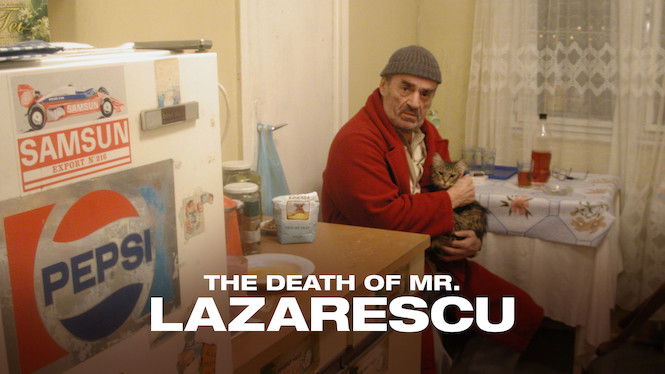On Netflix you can now see the award-winning Romanian film “The Death of Mr. Lazarescu” by director Cristi Puiu from 2005. The film belongs to the Romanian New Wave, whose works are sober, realistic and minimalist, usually with a touch of black humour, telling their storiess and usually take place in the late 1980s at the end of the totalitarian communist government under Nicolae Caeucaescu (4 Months, 3 Weeks and 2 Days [2007]) or in the social environment in modern Romania after the fall of the communist system, such as “The Death Mr. Lazarescu”.
Mr. Lazarescu is an old man who lives alone with his three cats in simple conditions in Bucharest and feels sick one evening. He has surrendered several times since the morning and suffers from severe headaches. He has no appetite and helps himself with a self-mixed alcoholic drink. He calls the emergency doctor, but when he doesn’t come, he turns to his neighbors, who manage to get an ambulance to have the old man examined by an emergency doctor. From then on, an endless journey through the night from hospital to hospital begins, as no one really wants to take care of him or sees himself in responsibility, and the captivating, unbearable drama unfolds.
The hierarchical structure of the hospital system is an issue here, and the leaders demonize their power when they command e.g. the doctor’s assistants or send a nurse to pick up coffee. Some doctors are helpful, do extensive tests and respond to the patient and then pass him on. Others point to the emergency doctor, who could be her mother in terms of age, in her place when she notices a mistake and interferes, is proud of her position and doesn’t care about finding a solution or who is really right. This is reminiscent of the blind observance of power structures in a totalitarian system.
The people in this story have a certain coldness and clarity in their character. Serious situations are often commented on with black humour. There is little empathy and compassion and it seems that all these people have already experienced a lot of suffering and pain in life and this is their way of dealing with it to protect themselves. But in short conversations in between, one asks about the family and the love or how the other person is doing.
Do you think the main characters represent the generations in Romanian society and their relationship to each other? The old man, who is seriously ill and has witnessed the war, which no one really understands and whose habits are perceived as peculiar. The middle-aged emergency physician in simple service who tackles and helps with the heart in the right spot. The young doctors with good education, looking down from their position on previous generations, have no understanding of them or are no longer interested in them, because there are other priorities. The film makes you think about your own society, about the processes in the health system and about how you interact with each other.
Unfortunately, the trailer does not hit the tone of the actual film in any way. So just try it out. Best in the Romanian original with subtitles. It’s worth it.
